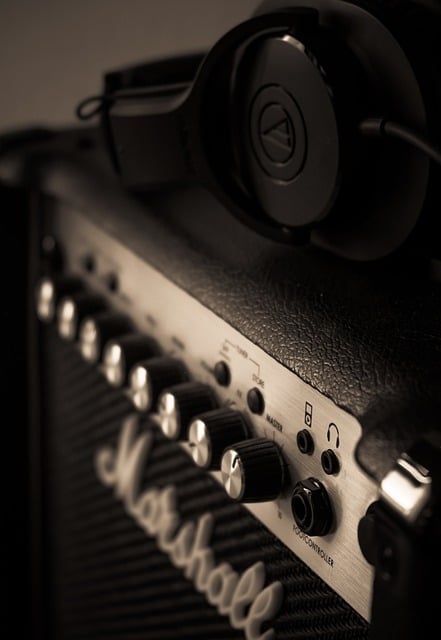AI websites for music production have revolutionized the industry by offering accessible platforms for composers to experiment with AI-driven music generation and composition. These tools, leveraging machine learning models on vast musical datasets, allow users to input parameters like mood, tempo, or instruments to guide creation. Key features include superior audio quality, diverse sounds, user-friendly interfaces, and seamless integration with Digital Audio Workstations (DAWs). Top platforms like Amper Music, AIVA, Magenta by Google, and MuseNet enhance productivity, cater to professionals, and enable exploration across various genres, marking a new era in musical creativity.
“Revolutionize your music production with the power of AI! This blog is your ultimate guide through the ever-evolving landscape of AI music tools, designed to enhance creativity and streamline workflows. From understanding the basics of these innovative platforms to identifying crucial features, we demystify AI’s potential. Dive into our comprehensive comparison of top AI music production sites, helping you navigate this exciting new realm. Discover how these cutting-edge tools can transform your artistic process and elevate your musical creations.”
- Understanding AI Music Tools: A Brief Overview
- Key Features to Consider for Music Production AI Websites
- Comparative Analysis of Top AI Music Production Platforms
Understanding AI Music Tools: A Brief Overview

AI music tools have emerged as a game-changer in the music production industry, transforming the way composers and artists create and collaborate on musical pieces. These tools leverage advanced algorithms to generate melodies, harmonies, and even entire compositions, offering an innovative approach to music making. One of the most prominent applications is seen in AI websites for music production, which provide accessible platforms for users to experiment with AI-powered music generation and composition.
These websites often utilize machine learning models trained on vast datasets of musical data, enabling them to learn patterns, styles, and structures from classical to modern genres. Users can input various parameters such as desired mood, tempo, or even specific instruments to guide the AI’s creative process. This technology not only speeds up production time but also opens doors for collaboration between humans and machines, fostering a new era of musical creativity and expression.
Key Features to Consider for Music Production AI Websites

When evaluating AI websites for music production, several key features stand out as essential. Firstly, audio quality is paramount; users expect high-fidelity outputs that rival human-produced tracks. Advanced AI algorithms capable of generating diverse and dynamic sounds are a must. Secondly, creativity and versatility are crucial; the best AI tools can offer unique musical ideas, adapt to various genres, and cater to individual artistic visions.
Furthermore, user-friendliness is vital for attracting and retaining music producers. Intuitive interfaces that simplify complex processes, without compromising control or customization options, make for a seamless experience. Lastly, integration capabilities with existing DAWs (Digital Audio Workstations) and plugins can significantly enhance workflow efficiency. AI websites that seamlessly integrate into established production pipelines are more valuable to professionals in the music industry.
Comparative Analysis of Top AI Music Production Platforms

In today’s digital age, Artificial Intelligence (AI) has emerged as a game-changer in the music production industry, revolutionizing the way musicians and producers craft their art. Among the myriad AI websites for music production, several platforms have stood out due to their innovative features and capabilities. This comparative analysis aims to shed light on the top AI music production tools, enabling users to navigate this dynamic landscape with ease.
Each platform offers unique advantages, catering to diverse user needs. For instance, some excel in generating original compositions, while others focus on enhancing productivity through intelligent automation. Tools like Amper Music and AIVA (Artificial Intelligence Virtual Artist) have garnered attention for their ability to compose complex melodies and harmonies, appealing to professional composers and producers. On the other hand, platforms such as Magenta by Google and MuseNet provide versatile music generation and manipulation capabilities, allowing users to experiment with various styles and genres.
In conclusion, the evolution of AI music tools has brought about a new era in music production, offering innovative ways to create and enhance musical compositions. As we’ve explored through this blog, understanding the key features and capabilities of various AI music platforms is essential for musicians and producers navigating the world of artificial intelligence. By considering factors like creativity, customization, collaboration, and accessibility, creators can choose the best ai website for music production that aligns with their unique artistic visions. The competitive landscape of these tools continues to push boundaries, ensuring a vibrant future for musical innovation driven by AI technology.
